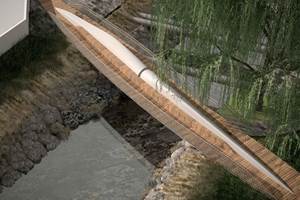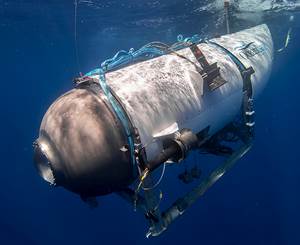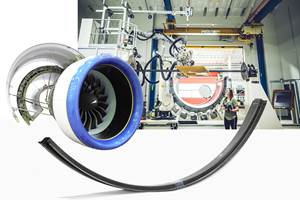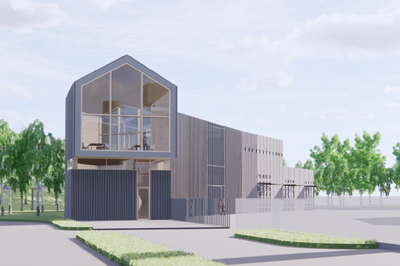AIMPLAS enters financial year with €13.3 million revenue and sustainability commitment
AIMPLAS closed 2019 with a 14% increase in revenue based on 226 R&D&I projects, became leading plastics technology center in Valencia, constructed new facility that promote research for circular economy.

Photo Credit: AIMPLAS
Back in October 2020, AIMPLAS (Valencia, Spain) Plastics Technology Centre, closed the 2019 financial year with revenue of €13.3 million ($15.66 million), which represents a 14% increase compared to the previous year. Its commitment to social and environmental sustainability was also highlighted by a report verified by the Global Reporting Initiative (GRI), an independent organization that is a pioneer in report presentation and an international benchmark in sustainability reports. AIMPLAS also notes the construction that also began in 2019 on a new 1,500-square-meter building which plays a role in environmental sustainability.
Of the €13.3 million in revenue in 2019, 73% came from a total of 226 R&D&I projects carried out, 62 of which were international in scope. In total, 493 companies (298 SMEs) participated in these projects and earned a return of €30.8 million ($36.3 million) in direct aid to finance their R&D&I activities. By sector, 34% were companies in packaging, 19% in recycling, 15% in the automotive and transport industries, 10% in construction, 8% in the health sector, 5% in the electrical-electronic sector, 4% in agriculture and 2% in aeronautics.
According to the CDTI report on Spanish participation in the Horizon 2020 program (2014-2019) — which analyzes the return on investment (ROI) of these European projects by autonomous community — AIMPLAS is the leading plastics technology center in the region of Valencia and in Spain as a whole. At a regional level, AIMPLAS has moved up to fifth place in the ranking and even surpassed some of the leading universities in this region. Meanwhile, at national level, it is ranked eleventh in the number of projects and economic return, sixth in coordinated projects and among the top four in the project-to-employee ratio. AIMPLAS says it also leads the way in the percentage of coordinated projects, given that 45% of the proposals carried out were coordinated. This highlights the technical excellence of AIMPLAS proposals with respect to the needs raised by the European Commission. During the H2020 program, AIMPLAS developed a total of 31 projects, 14 of which were coordinated.
The center’s other revenue in 2019 came from 6,094 services and assessments carried out (which accounted for 20% of this revenue) and training activities: 183 courses and workshops amounting to 3,195 hours attended by nearly 2,800 professionals from 1,226 businesses (which accounted for 5% of this revenue).
CSR and social impact
All 2019 economic, environmental and social data were collected to prepare the third sustainability report, which was verified by GRI. In 2016, AIMPLAS took the decision to join the United Nations Global Compact. Since then, it has reported on its CSR actions in line with the Compact’s ten principles on human rights, labor, the environment and anti-corruption. In 2019, the center went a step further and reportedly became the first Spanish technology center to produce reports in accordance with GRI standards.
The 2019 AIMPLAS sustainability report includes, for the first time, the results of the calculation by a specialist external consultant of the center’s social return on investment (SROI). The results of this study on the social (not financial) impact of all the center’s activities indicate that, for every euro invested in AIMPLAS activities in 2019, it achieved a return on investment of €7.22 ($8.48). The report also estimates that AIMPLAS contributed €70 million ($82.4 million) to the SDGs and its impact on the circular economy amounted to €59 million ($69.4 million).
Environmental sustainability
Throughout 2019, the circular economy was a guiding force in the activity of the technology center, AIMPLAS says, which submitted more than 80 R&D&I projects and participated in a total of 28 events on the topic. The center also taught 25 courses and organized four workshops that were attended by more than 500 people. In terms of technological services, a new diagnostics service was launched to enable companies to implement this type of strategy. Furthermore, the number of ENAC-accredited tests for recycled plastics increased and a researcher was taken on as a EuCertPlast-accredited expert auditor to carry out the audits that recycling companies must pass to obtain this certification.
Environmental sustainability has even played a key role in the center’s investments in new facilities, as exemplified by the construction of a new 1,500-square-meter laboratory, which brings the center’s total built area to 10,500 square meters (6,000 square meters of pilot plants and 4,500 square meters of laboratories). The facility will double its polymer synthesis capacity with a pilot plant maintaining a capacity of 50 liters (pre-industrial level) that includes a cleanroom to further promote research in fields such as health, plastronics and aerospace. The new laboratory received environmental certification in accordance with the BREEAM methodology, which endorses the building’s sustainability. AIMPLAS says it was the first Spanish laboratory to achieve this certification.
In terms of labor, another milestone in 2019, AIMPLAS says, was its achievement of the Great Place to Work certification for the first time, which considers the company an optimal organization for peoples’ professional development. Furthermore, the center entered the rankings of the best places to work for seniors and millennials.
The technology center celebrated its 30th anniversary in 2020 and received support from the Valencian Regional Ministry of Sustainable Economy, specifically from the Valencian Institute of Business Competitiveness (IVACE), whose collaboration not only helped fund several projects, but was also key for making progress and consolidating the innovation model implemented by both organizations.
Related Content
Natural fiber composites: Growing to fit sustainability needs
Led by global and industry-wide sustainability goals, commercial interest in flax and hemp fiber-reinforced composites grows into higher-performance, higher-volume applications.
Read MoreRecycling end-of-life composite parts: New methods, markets
From infrastructure solutions to consumer products, Polish recycler Anmet and Netherlands-based researchers are developing new methods for repurposing wind turbine blades and other composite parts.
Read MoreThe lessons behind OceanGate
Carbon fiber composites faced much criticism in the wake of the OceanGate submersible accident. CW’s publisher Jeff Sloan explains that it’s not that simple.
Read MoreThe potential for thermoplastic composite nacelles
Collins Aerospace draws on global team, decades of experience to demonstrate large, curved AFP and welded structures for the next generation of aircraft.
Read MoreRead Next
AIMPLAS develops pultruded bio-based profiles for rural and urban development
European BASAJAUN project to optimize sustainable urban development and improve the rural economy via novel bio-based materials, products and building systems.
Read MoreAll-recycled, needle-punched nonwoven CFRP slashes carbon footprint of Formula 2 seat
Dallara and Tenowo collaborate to produce a race-ready Formula 2 seat using recycled carbon fiber, reducing CO2 emissions by 97.5% compared to virgin materials.
Read MoreDeveloping bonded composite repair for ships, offshore units
Bureau Veritas and industry partners issue guidelines and pave the way for certification via StrengthBond Offshore project.
Read More

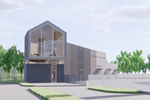









.jpg;maxWidth=300;quality=90)





